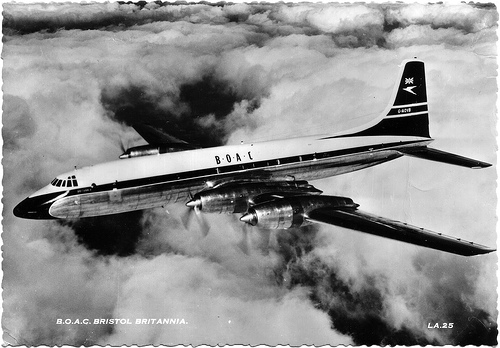After the second world war Britain had a big aircraft manufacturing capacity and the experienced engineers to design excellent civil airliners that would use that capacity. So when I was young there was a very strong lineup of civil aircraft being made here by different manufacturing companies. The Vickers Viscount and Vanguard, the Bristol Britannia, the Hanley Page Dart Herald and the de Havilland Comet. And now there are none. In fact the whole world airliner industry has consolidated down to just two companies on the whole planet, Airbus and Boeing.
To a similar or lesser extent this has happened in many other industries. For instance shaving razors have consolidated down to Gillette and Schick/Wilkinson Sword.
So what is behind this consolidation?:
- High costs of product development. Boeing are said to have “bet the company” a number of times when introducing new aircraft types, so great are the costs. These costs can only be recovered across a large number of sales and these can only achieved by global sales. So we move from national markets to regional markets to global markets. And with each of these moves the number of organisations that can be supported is reduced. And so it is with games, the world’s top handful of publishers are global organisations.
- High cost of sales, marketing and distribution activity. The publishing side of releasing a AAA global game title can often cost more than making the game. This is a massive investment and so the same reasoning applies as it does to product development costs.
- Spreading the risk. A triple A game can make a lot of money if it succeeds and becomes a chart hit across a few countries. But it will cost the publisher the same amount if it fails. And nobody is good enough to only publish guaranteed hits. So a publisher needs to be big enough to have enough funds from hits to cover the costs of the failures. And as more fail than succeed this requires a consistent high volume of titles just to ensure survival.
- Surviving business and economic cycles. The game industry is growing strongly now but it was hit very badly by piracy in the home computer era and again at the end of the PSX cycle. Even now boxed PC games and PSP software are being decimated by piracy. It takes big resources to survive these downturns.
- Financing the business. If you want to borrow £100,000 it is very difficult. £100 million is a lot easier. A big global corporation can borrow more cheaply and in more different currencies to suit their business needs. Look at how easily Electronic Arts have raised the funds to buy Take Two despite their current losses.
- Buying the best resources. If a Harry Potter or Lord of the Rings license comes along it is easier for a global giant to buy it. So all the best resources gravitate to the biggest companies. Especially the best management. Which only leads to a virtuous cycle of them becoming even bigger.
- Clout in merger and acquisition activity. The bigger a company is the more difficult it is to take it over. And the easier it is for them to buy other companies. We see this all the time and will see a lot more of it.
As you can see the cards are so heavily stacked in favour of the big guys that it is surprising that smaller publishers still exist, what is for sure is that at the end of each year there are less. And it is inevitable that British publishing goes the same way as British civil aircraft production. And for many of the same reasons.
